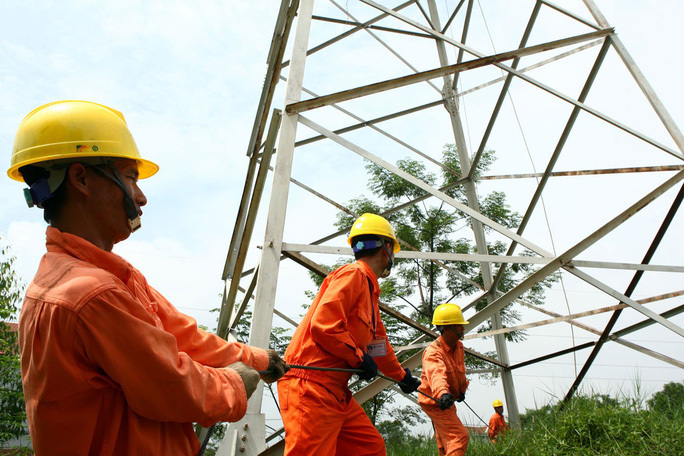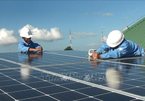Under the seventh national power development plan, from now to 2030, the power volume to be created must satisfy the demand for socio-economic development of the country with average GDP growth rate of 7 percent per annum.

According to Hoang Quoc Vuong, though the growth in electricity demand in the time to come will slow down, it will still be high compared with other countries – 8.5 percent in 2021-2025 and 7.5 percent in 2026-2030.
The high growth rate puts pressure on the energy sector in the context of slow implementation of many power projects. Large- and medium-scale hydropower sources have been fully exploited. Oil and gas reserves will decrease, but renewable energy is costly.
| The high growth rate puts pressure on the energy sector in the context of slow implementation of many power projects. Large- and medium-scale hydropower sources have been fully exploited. Oil and gas reserves will decrease, but renewable energy is costly. |
In such conditions, experts say, using energy in an effective way and practicing thrift will be the top priority.
According to MOIT, in 2011-2015, Vietnam could save 5-8 percent of total energy consumption, or 11-17 million tons of equivalent oil.
The noteworthy thing was that the energy intensity of much energy consuming industries decreased in the period. The decrease was 8.09 percent in steel manufacturing, 6.33 percent in cement production and 7.32 percent in spinning.
Trinh Quoc Vu, deputy director of the Energy Saving and Sustainable Development, stressed that it is necessary to mobilize all resources to accelerate the saving and effective use of energy through technical support, science & technology research, product and human resources development in this field.
In order to help enterprises become familiar with energy saving, MOIT will give technical support in energy auditing and training.
Regarding energy saving, Tran Dinh Thien, a respected economist, emphasized that it is necessary to be selective when licensing FDI projects.
He said the US-China trade war has prompted foreign investors to relocate their production bases in Vietnam. Foreign investors may bring backward technologies to Vietnam which would pollute the environment and consume much power, thus putting pressure on Vietnam’s electricity supply.
Nguyen Quan, former Minister of Science and Technology, said as traditional energy sources are being depleted, Vietnam should think of nuclear power. In 2016, the National Assembly postponed the nuclear power project in Ninh Thuan province. However, Quan thinks Vietnam needs to resume the development.
Quan suggested that Vietnam can invite foreign firms to help build nuclear power plant, but the plant must be operated by Vietnamese. Turn-key mode won’t be applied in Vietnam because this is dangerous for energy security and national security, because in the digital era, individuals and institutions can regulate nuclear power plants from a distance of thousands of kilometers.
Thanh Mai

Energy using efficiency remains pressing issue
Vietnam is among the top energy consumption countries in the region and the world. Hence, it’s never better to cutting down energy consumption and mull over solutions for efficient use of energy.

VN banks boost retail lending for solar energy
Banks in Vietnam race to offer loans for household solar energy projects, using low interest rates and long repayment periods as incentives.
 The demand for electricity merchandise will be high in the upcoming years: 235 billion kwh, 352 billion kwh and 506 billion kwh by 2020, 2025 and 2030, respectively.
The demand for electricity merchandise will be high in the upcoming years: 235 billion kwh, 352 billion kwh and 506 billion kwh by 2020, 2025 and 2030, respectively.